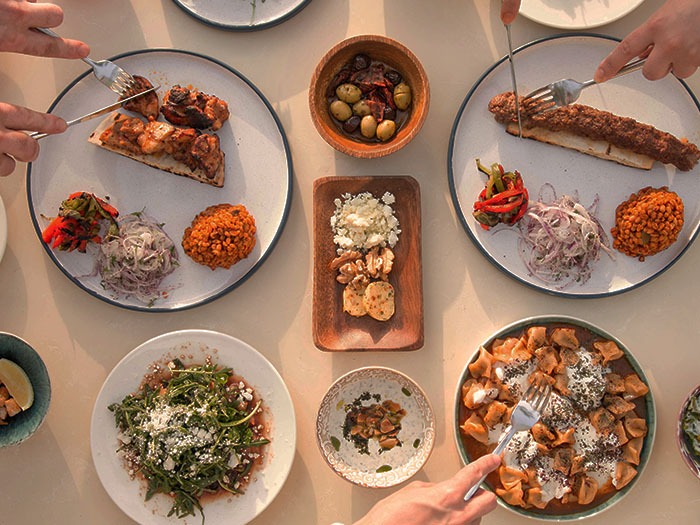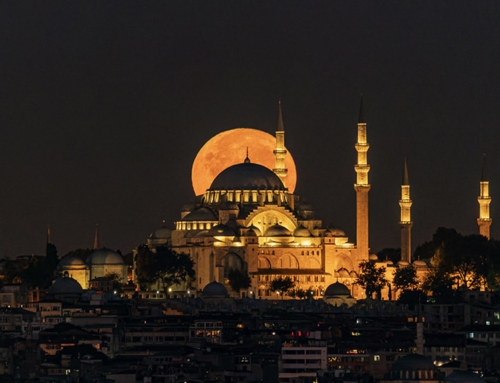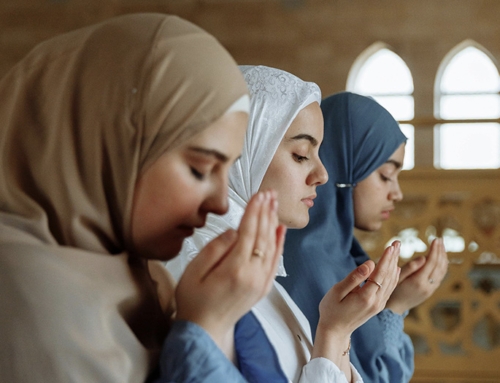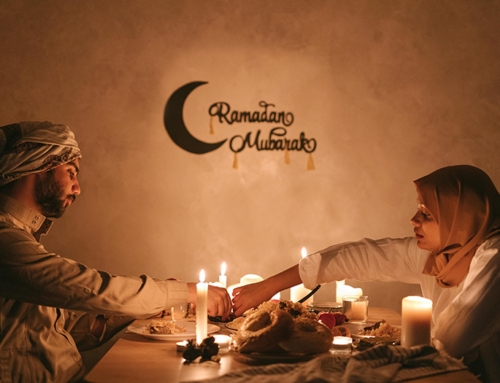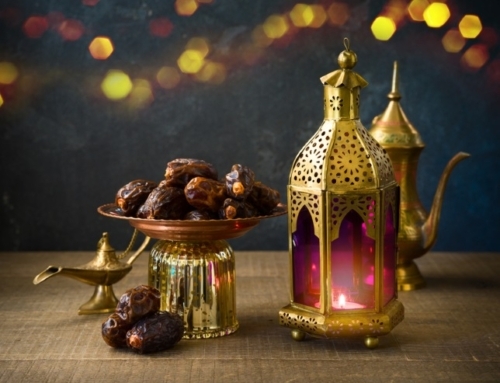Ramadan is the 9th month of the Islamic calendar and is observed by Muslims worldwide as a month of fasting, prayer, reflection and community. One of the key components of Ramadan is fasting from dawn to dusk. At sunset each day, Muslims break their fast in a meal called iftar. If you are invited to an iftar as a non-Muslim, here is a guide to what you may expect.
The Significance of Iftar
Iftar is one of the most important meals for Muslims during Ramadan, second only to suhoor, the pre-dawn meal before the fast begins. Iftar literally means “break fast” and takes place at maghrib, which is the time of sunset when the fast ends for the day. Muslims often begin breaking their fast as soon as the sun sets. Eating dates and drinking water or milk is traditionally done to break the fast, as it is what the Prophet Muhammad, peace be upon him, did. Beyond its religious significance, iftar is an opportunity for family and friends to gather and share a meal. It is considered virtuous to invite others, especially non-Muslims, to participate and share in the blessings of iftar.
Arriving at the Iftar
One of the most important aspects of iftar is the timing. For Muslims, breaking the fast at sunset is a cherished religious tradition. Arriving on time allows you to fully participate in this special experience. Ideally, plan to arrive a little before maghrib time, which marks sunset. This ensures you are present because Muslims will want to break their fast immediately. Upon arrival, you may wish to greet everyone with “Ramadan Mubarak,” but no one will expect or require it. In the time leading up to the adhan, you may notice a sense of growing anticipation from your Muslim hosts, guests, and community members. For those fasting, the hours of abstaining from food and drink build up quite an appetite!
As sunset draws closer, Muslims will keenly watch the time so as not to miss the exact moment for iftar. Some may constantly check clock apps on their phones or watches. Others may listen for someone at the local mosque to make the call to prayer. Those in the mosque may wait with bated breath for the first refrains of the adhan before breaking their fast. This anxious waiting highlights just how much spiritual significance Muslims attach to the timely iftar ritual. The fasting day is long and challenging, so the adhan comes as sweet relief. The excitement and joy in finally being able to eat and drink again is palpable once the adhan sounds. For Muslims, partaking in iftar as a community deepens their faith and connection to God.
If you are invited to join an iftar hosted at a local mosque. This tends to be a larger community gathering that is open to Muslims and non-Muslims alike. The mosque may have separate areas for men and women. Wait for the adhan then join the communal breaking of the fast once prayers conclude.
The Maghrib Prayer
Before partaking in iftar, most Muslims will perform the Maghrib prayer, which is one of the five daily prayers performed facing Mecca. Some Muslims choose to break their fast with dates and water, offer Maghrib prayer, then have the full iftar meal. Others opt to go straight into the full meal, followed by prayer afterwards. Typically, the Maghrib prayer is a brief devotional act, taking just a few minutes. As a guest, you can observe quietly by standing or sitting in a respectful manner nearby while your hosts complete their prayers. There is no expectation for non-Muslims to participate in the ritual movements and recitations.
Depending on the iftar setting, the Maghrib prayer may be done individually or communally. At mosques, the whole congregation will perform Maghrib together before sharing the evening meal. Be ready to wait patiently as your hosts complete their religious obligation before resuming the iftar festivities. The right timing and sequence of prayer and meal may vary, so follow the lead of your hosts.
Dress code
When attending an iftar during Ramadan, dressing modestly is appreciated. For women, avoiding revealing clothing is considered respectful without the need to wear hijab in the mosque. Opting for loose-fitting items like long-sleeved tops, long skirts, or loose pants allows comfortable participation while respecting Islamic principles of modesty. For men, avoid shorts or sleeveless shirts. It’s also important to note that shoes are removed when entering mosques and many Muslim homes, so keep that in mind. The idea is not expectation of strict dress rules, but rather to join the reflective spirit of Ramadan through simple attire that doesn’t draw outward attention. Hosts at private homes may have different perspectives and expectations for dress, so asking considerately about recommendations ahead demonstrates thoughtfulness without assumptions. Making some effort then allows all guests to focus inwardly and share fully in iftar traditions and spirituality.
Community Iftars
In many Muslim communities, mosques and organizations host large public iftars open to all. These communal iftars are times of celebration and bridge-building. Attendees from all walks of life, faiths, and backgrounds come together to share in the Ramadan experience. The atmosphere is joyful as families, friends, neighbors, colleagues and even strangers dine together at long tables. Some volunteers may help serve the food and assist attendees. You will see Muslims of diverse ages, nationalities and cultures relishing the opportunity to break bread in unity. Feel welcome to engage with those around you and make new acquaintances. These types of iftars often happen at mosques and are open to everyone. Check out our article on what to expect when visiting a mosque for the first time.
Family Iftars
While community iftars capture the joy and inclusiveness of Ramadan, family iftars offer a more intimate experience. At community iftars, you may be seated with strangers and the atmosphere can be festive but hectic as large groups break their fast together. If invited to someone’s home, this will be very similar to what you might expect when going to someone’s house for dinner. Family iftars are often more relaxed as relatives take time to catch up over favorite home-cooked dishes. Conversations tend to be more personal. This allows deeper bonding between parents, children, grandparents and other loved ones. There is comfort in iftar being a daily family reunion, think of it like a thanksgiving dinner. While community iftars unite the broader Muslim community, family iftars bring close relatives even closer. The common thread is the shared sense of love and spiritual renewal that iftar signifies, whether among family or new friends.
Taraweeh Prayers
In Islam, Ramadan nights are often devoted to long taraweeh prayers performed in mosques. Observant Muslims will leave family or community iftars quite soon, within 30 minutes to an hour after eating, in order to prepare for taraweeh. This special prayer starts around an hour after iftar and can last one to two hours reciting sections of the Quran. Attending taraweeh is highly recommended but not obligatory. As an iftar guest, do not feel compelled to attend taraweeh unless your hosts invite you. You may politely leave after eating in order to give the host a few moments to rest and wash before going to the mosque for the prayers.
Ask Questions
If you are unsure about customs or expectations as a guest, do not hesitate to ask. Most will be happy to explain aspects that are unclear. You can simply say “As a non-Muslim, I want to be respectful during iftar. Can you please explain more about any traditions I should know about?” Feel free to ask about appropriate dress, when you should arrive, whether to bring anything, how long you should stay, any dietary restrictions that can be accommodated, and other considerations. Your host will appreciate you wanting to learn about their practices and avoid any missteps. Being open and honest about what you do not know shows respect. Let your host know you want to experience iftar properly, so you do not inadvertently offend. Most Muslims will be touched that you took the time to ask and understand.
Conclusion
While the iftar meals and family gatherings are hallmarks of Ramadan, the spiritual essence of the month runs much deeper for Muslims. Fasting, prayer, reflection and charity take on renewed significance. Ramadan is seen as a time for reconnecting one’s soul to God through acts of devotion and worship. The religious rituals and traditions all aim to provide spiritual nourishment, not just physical sustenance. This intense spiritual commitment and experience of drawing nearer to God holds the true purpose and meaning of Ramadan.
Whether taking part in taraweeh prayers, reciting Quran, performing extra supplications or donating to charity, Muslims focus on spiritual renewal. They believe sincere worship during Ramadan has immense unseen blessings and rewards with God. By emptying and cleansing themselves of worldly distractions, they hope to fill their hearts with faith. Even the deprivation of fasting is meant to instill God-consciousness and humility. Therefore, while the communal meals and family bonds make Ramadan joyful, the real source of enlightenment comes from within. The spiritual journey is extremely personal and intimate. If witnessed and understood properly, the spirit of Ramadan exemplifies the very height of religious dedication and renewal of the soul.
Got Questions?
We have Answers. Get in touch now.


